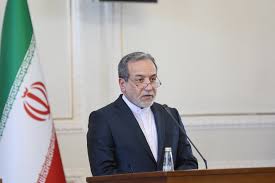Europe Says U.S. Ready for Direct Talks with Iran
On June 20, 2025, European diplomats in Geneva revealed that the United States has expressed openness to direct negotiations with Iran, despite ongoing tensions and the parallel possibility of military escalation. The revelation comes at a volatile moment in Middle Eastern geopolitics, with diplomatic channels working urgently to avert a broader regional conflict.
The potential for U.S.-Iran dialogue is reportedly centered around limiting uranium enrichment levels within Iran’s nuclear program. However, American officials remain firm that there will be no full suspension of Iran’s nuclear activities—drawing a clear line between arms control efforts and complete program rollback. This position underscores Washington’s continued commitment to non-proliferation while attempting to de-escalate tensions diplomatically.
Iran, for its part, has conditioned any new talks on the immediate cessation of Israeli airstrikes, which Tehran claims are strategically timed to derail diplomatic progress. Iranian officials argue that ongoing Israeli military actions, especially in Syria and surrounding regions, are a deliberate effort to provoke conflict and distract from meaningful diplomacy.
Meanwhile, EU foreign ministers from France, Germany, and the United Kingdom are actively mediating behind the scenes. Their goal is to stabilize global markets, reassure international investors, and reduce the growing risk of war. The European Union’s diplomatic efforts aim to revive some form of nuclear framework, potentially echoing elements of the 2015 JCPOA agreement, albeit with stricter terms.
Amid these complex negotiations, speculation is mounting that the U.S. or its allies may still consider targeted military action if diplomatic efforts collapse. Reports indicate that Iran’s Fordow nuclear site, a heavily fortified underground facility, could be a likely target. While no direct threats have been confirmed, the possibility of a preemptive strike remains on the table, further increasing regional instability.
As global powers tread a fine line between diplomacy and deterrence, the coming weeks may prove critical. With oil prices fluctuating and Middle East security dynamics shifting rapidly, the outcome of these U.S.-Iran discussions—or their failure—could shape the region’s future trajectory.








